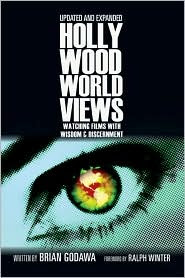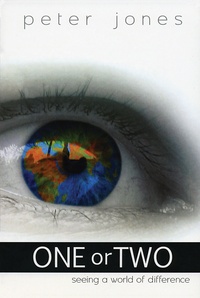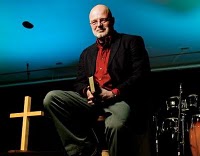Natalina’s review of the film Maleficent: Sympathy for the Devil: Review of Disney’s “Maleficent” went viral attracting the scorn of atheists and lots of nice kudos as well. I’ll commend the reader to read it and just add a few technical points. Make no bones about it, this is a postmodern deconstruction of Sleeping Beauty. Those big words are important and I will quote from some real pros in order to explain them to you. Recall that the original tale “Sleeping Beauty” had clear moral categories and children could easily identify the hero and the villain. That moral clarity is the target of subversion. Postmodernism questions any claim to moral truth and asserts relativism as its only absolute albeit it is hanging in midair. Screenwriter Brian Godawa explains:
Postmodernists focus on “deconstructing” a belief by uncovering the various hidden or unconscious cultural prejudices that shaped it, rather than determining the verity of a truth claim. After all, if there is no transcendent truth or objective reality, then no belief or worldview about reality can be verified. Propositions about reality are reducible to personal agendas or biases, so all debate or inquiry reduces to the uncovering of these biases. Postmoderns will even go so far as to say that personal identity is also an illusion, because we are constructed by our society. (Brian Godawa. Hollywood Worldviews: Watching Films with Wisdom & Discernment, Kindle Locations 1269-1273).
When one has a working knowledge of these techniques, it makes it simple to see what the movie producers are attempting to do: subvert objective moral categories. This goes much further than entertainment and plays out in religion and politics. New Testament scholar Peter Jones has done a masterful job exposing how this has transformed Western culture. Please consider how this is playing out in terms of spirituality:
Postmodern deconstructionists said there is no metanarrative (overarching worldview), but religious pagans didn’t seem to hear them and are busy constructing a new one to explain everything. In other words, we are seeing not a breakdown of law and order, but a redefinition of it; not unrestrained immoral behavior, but a justification of it; not a laxity about sexual perversion, but a legalization of it; not a materialistic rejection of God, but a spiritual redefinition of God that turns Him into the goddess. Intellectual Neopagans dismissed the term “New Age” as narcissistic, focusing only on personal bliss and freedom. Today’s spiritualists are “progressive” or “integral,” eager for a coherent worldview to save the planet. The new systematized paganism includes:
- a powerful spiritual experience, based on the subconscious, that provides an exit from rationalism;
- a resolution of the conflict between science and religion;
- an end to religious strife;
- a compelling analysis of Western philosophy and a critique of rationalism, materialism and consumerism that is as sharp as some Christian versions;
- an enchanted, passionate, environmentally-informed view of nature;
- an all-encompassing geopolitical vision of planetary harmony; a destruction of the illogical church/state wall of separation and the spiritualization of life in the public square;
- a theory of planetary economics;
- an all-inclusive, cradle-to-grave, spiritually inspired educational policy;
- a powerful, therapeutic psychology that delivers from anger and greed and proposes an experience of rebirth;
- a liberating redefinition of ethics, namely eco-ethics;
- a radical liberation from narrow heterosexuality into the pleasant paths of pansexuality;
- and an evolutionary account of history and human significance.
Thousands of progressives in academics, the media and politics, along with liberal church leaders are joining to produce a pagan cosmology to repair our deconstructed world. Such a worldview, proposed as “timeless perennial truth,” is full of exuberant, infinite possibilities.
People are attracted to the new cosmology not only because it proposes progressive ideas and behavior, but because it explains and justifies them, so that they can be adopted in good conscience. Having absorbed the worldview makeover, which appeals to freedom, civil rights and progress, people respond: “Oh, I get it. Why not? Makes sense to me.” (Peter Jones. One or Two: Seeing a World of Difference. Kindle Locations 614-636).
I hope it is becoming clear that Maleficent is much more than a revamping of an old fairy tale. The writers certainly do have an agenda and they can propagate it worldwide through an entertainment medium and most people do not even realize they are being manipulated. Pantheistic monism, what Jones calls oneism is the overarching pagan spirituality of our time.
One-ism believes that “all is one” and shares the same essential nature. Theologians use the term “consubstantiality.” As you probably know, “con” means “with” in Latin, and you know what “substantial” means—“substance” or “essence.” In One-ism, everything shares the same essence. In a word, everything is a piece of the divine. (One or Two,151–157.)
In contrast biblical theism proposes a transcendent creator God. Paul draws this distinction within the context of Roman paganism: “because they exchanged the truth about God for a lie and worshiped and served the creature rather than the Creator, who is blessed forever! Amen.”(Romans 1:25). In Disney’s world there is no creator God, magic serves in the role of an impersonal divine force from within nature. It is a oneist cosmology in which evil becomes good and good becomes evil and there really is no distinction – all is one. Jones explains:
In the make-believe world of One-ism, distinctions are anathema. All distinctions, like true and false, right and wrong, good and evil, Creator and creature, Christ and Anti-Christ, are considered relative, meaningless notions. The goal of the mature spiritual person is to “join the opposites,” to create unity out of difference and so to take control of life. True spirituality means creating your own reality by making an amalgam of your dark and light sides. (Jones, One or Two: Kindle Locations 2084-2087).
Of course the above describes exactly what happened in the film. In the end, the hero and the villain are the same person: Maleficent. It’s textbook postmodern deconstruction designed to subvert objective morality, replace it with postmodern relativism and promote the new pagan spirituality.








